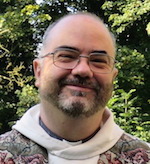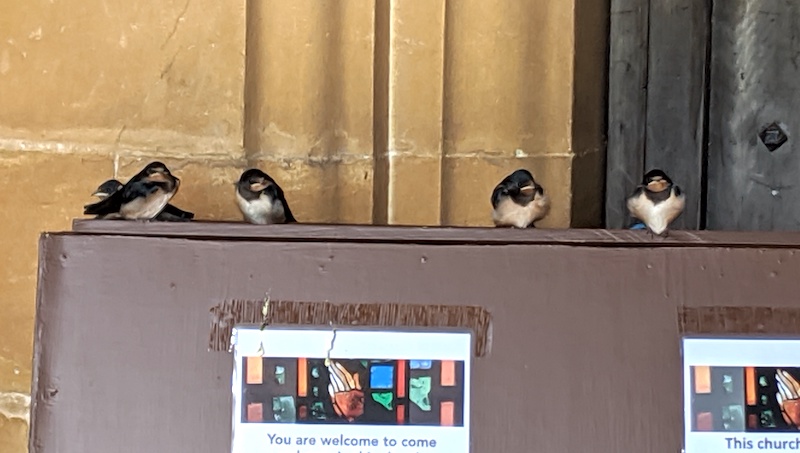 Continuing the series on 4Rivers Churches…
Continuing the series on 4Rivers Churches…
The horror show that is the war in Ukraine has chewed up European shape and sensibilities, and I cannot help but feel uncomfortable about continuing the series about the four rivers, but there is a connection and relevance, so please read on.
Yes, the four rivers (actually two rivers and two brooks) are The River Teme, The River Rea, Dick Brook, and Shrawley Brook. They can help us think about who we are and our relationship with God and the world around because of where they start and end. I will expand these ideas in future articles, but for now the briefest sketch will do.
The River Rea originates in Shropshire and ends merging into the Teme at Newnham Bridge. In other words it starts outside of us, and ends within us – representing those things that shape us from elsewhere and become part of who we are.
Shrawley Brook originates from various trivial tributaries somewhere in the Witleys and flows to the Severn representing those things from us, that arise here, and go from here out into the world. Right now – that might include donations local people are sending to refugee aid for example.
Dick Brook – now a mere muddy trickle compared to its former self should be famous for being an early attempt at industrial river navigation in 1653 courtesy of a certain Andrew Yarrington, who was in many ways ahead of his time. We may say, the river represents those things that arise out of our own human effort.
And then there is the River Teme, which rises in Wales and passes through us on its way to the Severn at Worcester. It represents those things from elsewhere, that we interact with for while, then they pass on to other places, but they are not us. As a river the Teme is surprisingly volatile despite its placid appearance most of the time. In extended dry periods, it is known to dry up and stop flowing altogether, and in severe weather it can become a ranging torrent powerful enough to take life. In such ways, the river represents how we are not, or should not be, isolated from the world. The wider world is part of us, and we are part of it.
Lindridge school embraces this idea in one of its values called, “Horizons.” We enjoy a lot of beauty in our area, but we are not to be escapists. We are all children of God, heirs of his kingdom, citizens of the planet, ‘actors on the stage’, and are called to do what we can to make the world a better place, even where issues start and end elsewhere. Love may begin at home, but it should not end there. Give generously, lobby the government, open homes to receive, watch out for others, pray without ceasing, encourage each other to act where we can and how we can.
That’s it for now, Rev Ted.



 In 1987 the remains of a 15th Century pilgrim were discovered at the base of the tower of Worcester Cathedral. We know he was a pilgrim because he was buried with a staff and a cockleshell. The cockleshell was carried by medieval pilgrims (of which there were thousands) to Santiago in Spain, to the site where tradition has it that Jesus’s disciple St James is buried.
In 1987 the remains of a 15th Century pilgrim were discovered at the base of the tower of Worcester Cathedral. We know he was a pilgrim because he was buried with a staff and a cockleshell. The cockleshell was carried by medieval pilgrims (of which there were thousands) to Santiago in Spain, to the site where tradition has it that Jesus’s disciple St James is buried. Of the Four Rivers (River Teme, River Rea, Shrawley Brook, Dick Brook) it is this last-named one, Dick Brook, that seems to arouse the most emotions. A number of people emailed, phoned or spoke personally to me after being upset at my description that where it joined the River Severn it looked more like a muddy trickle that a flowing river. It is interesting what issues excite people? But may I challenge those people not to contact me, but to write into this magazine with those many childhood stories and fond memories of Dick Brook,and/or complaints about what Rev Ted wrote: I am sure people would enjoy reading the articles.
Of the Four Rivers (River Teme, River Rea, Shrawley Brook, Dick Brook) it is this last-named one, Dick Brook, that seems to arouse the most emotions. A number of people emailed, phoned or spoke personally to me after being upset at my description that where it joined the River Severn it looked more like a muddy trickle that a flowing river. It is interesting what issues excite people? But may I challenge those people not to contact me, but to write into this magazine with those many childhood stories and fond memories of Dick Brook,and/or complaints about what Rev Ted wrote: I am sure people would enjoy reading the articles.


